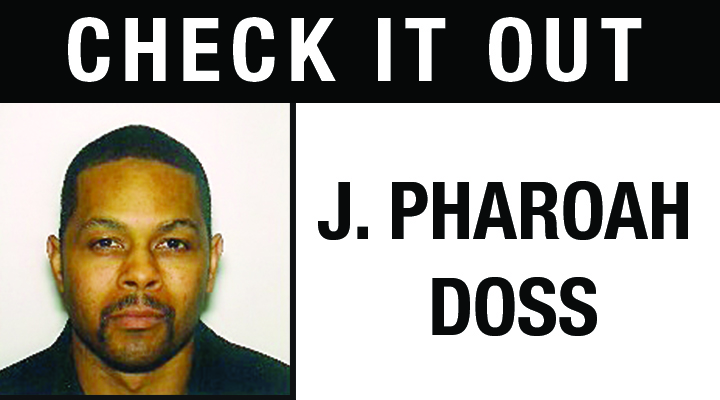by J. Pharoah Doss
For New Pittsburgh Courier
What is justice?
This question dates back to ancient Athens. Socrates posed the question to his contemporaries. Each person gave an example of justice, but Socrates pointed out the flaws in their logic. The debaters in the Socratic dialogues failed to reach a consensus regarding the definition of justice.
Last year, an incident was captured on video that almost every American viewed as unjust.
While making an arrest, Derek Chauvin, a White Minneapolis police officer, knelt on George Floyd’s neck, a handcuffed Black man, for over nine minutes, which resulted in Floyd’s death.

The police chief in Minneapolis immediately fired Chauvin and he was charged accordingly. More importantly, there was no racial or occupational double standard applied to help Chauvin escape trial.
Unfortunately, none of that mattered.
Riots broke out across the country and demands were made for defunding the police. Police stood down while local politicians met demands to broker the peace. Meanwhile, corporations pledged millions of dollars to social justice causes making it apparent that violence or the threat of violence produced results.
But if the system successfully brought Chauvin to justice, charged him with second-degree unintentional murder, third-degree murder, and second-degree manslaughter and proceeded to set the trial date, why did the riots erupt?
Because of race.
According to statistics, police kill roughly 1,000 people per year, that’s out of an annual estimate of 50 million police encounters and 10 million arrests, and the majority of the victims are not Black; they are White. Whenever a fatal police encounter occurs and the officer and the victim are White, the story remains local and it doesn’t make national headlines. The legal proceedings, if any, are between the individuals involved with little publicity. However, when a White police officer has a fatal encounter with a Black person the parties involved cease being individuals and are turned into national symbols. In this case, Chauvin symbolized the oppressor while Floyd symbolized the oppressed.
Rev. Al Sharpton, the popularizer of the protest slogan, “No Justice, No Peace,” told the press, “Chauvin was in the courtroom but America was on trial.” Now, the jury was no longer expected to decide whether or not to convict an individual charged with a crime, the jury was expected to find America guilty of systemic racism and the extrajudicial killing of Black people. And to make matters worse, official and unofficial voices openly declared if the jury didn’t deliver the verdict they demanded, rioters would burn America to the ground.
Fortunately, Chauvin was convicted of all charges. The verdict was celebrated throughout the country. Speaker of the House Nancy Pelosi rejoiced and said, “Thank you, George Floyd, for sacrificing your life for justice. For being there to call out to your mom … Because of you, and because of thousands—millions—of people around the world who came out for justice, your name will always be synonymous with justice.”
However, Keith Ellison, attorney general of Minnesota, said, “I would not call today’s verdict, justice… Because justice implies true restoration… But it’s accountability.”
Ilhan Omar, Democratic congresswoman from Minnesota, called the conviction a “necessary condition” for justice, but it was not sufficient, and a CNN headline stated: Activists say Derek Chauvin’s conviction is progress but not ‘true justice’ for people of color facing police violence.
Apparently, the verdict brought peace —but no justice.
So, now we’re back to the original question: What is justice? Justice is the verdict—guilty or not guilty—rendered by an impartial jury after the accused had a fair trial.
Socrates would have examined my definition of justice and asked: How can a coerced verdict be just and how can symbolism be sentenced?